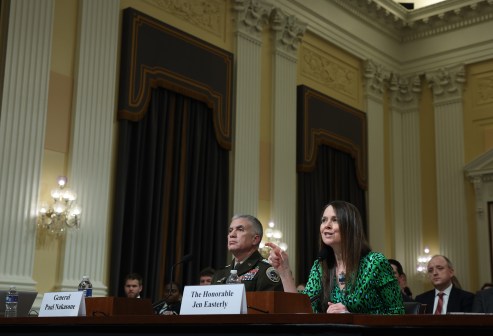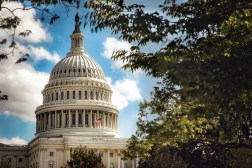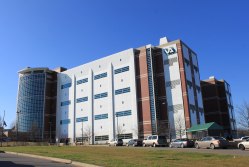DISA tech exec wants to react to cyberthreats ‘at the speed of electrons’
David Bennett, director of the Implementation and Sustainment Center at the Defense Information Systems Agency, envisions a future where network infrastructure can uncover fishy activity — and immediately react.
It’s a kind of cybersecurity Internet of Things where smart routers, switches and other machines learn to identify and respond to malware threats they encounter.
“We’ve got to be able to react at the speed of electrons, not at the speed of someone’s hand and eye coordination,” said Bennett, speaking at the Digital Innovation Summit, produced by FedScoop, on Wednesday. “And the only way we’re going to do that is leveraging this Internet of Things.”
He underscored the importance of working to find new ways to bolster cyber defenses overall.
“Security is one of the things that I think everybody talks about but I’m not sure we put enough focus on,” said Bennett, whose agency provides IT and communications support to the military. He adds, “If we don’t look at security in a new and innovative way, we’re going to miss the bubble.”
Fellow panelists talked about weighing cybersecurity concerns — particularly in a government still reeling over two security breaches at the Office of Personnel Management that comprised the data of 22 million people — with the push to make their IT infrastructure more efficient.
Randal Cole, data readiness branch head within Marine Corps headquarters’ Programs and Resources Department, talked about the challenges of assuaging the fears of IT staff when experimenting with tools like cloud.
“Security is used sometimes as an excuse across different organizations within DOD, and I say that carefully I guess, … not to share data,” he said. “If we’re all within the network and approved to operate, security should be less of an issue.”
Meanwhile, Marvin Carr, policy adviser in the Office of the Chief Technology Office in the Executive Office of the President, emphasized the importance of protecting the data held by government. He urged the audience to remember that data is linked to citizens.
“We’re not just securing zeros and ones,” he said. “We’re securing people’s futures.”






